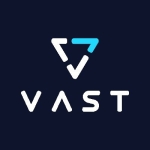The performance gains over traditional FAS systems and spinning media make it invaluable for an organization. We specifically have deployed it to troubleshoot storage performance. We don't really have a use case for it other than to troubleshoot at this point. It's allowed us to validate that there are no problems with the storage and to leverage the All Flash system to show that storage wasn't the issue.
It's reducing troubleshooting time to identify which major functional area the problem has been in. We're able to identify quickly now that, whether storage is or is not a contributor to any troubleshooting that we have going on.
At this point, I don't really have any comments on room for improvement because we don't have a lot of use case in our environment right now. We don't actually have a use case other than troubleshooting. Right now, we don't have any high-performance data that needs all flash at this time.
Obviously, keeping the scale and leveraging higher-capacity, solid-state drives is great to reduce power and cooling and space in the data center. That's not really a NetApp thing, that's more of a Samsung thing, who are our flash vendor. It’s absolutely something we’re looking forward to improving on. They're essentially getting rid of SAS in our environment as they grow. We purchased it with the 3.8 TB drives and they've done well to reduce a lot of space. All Flash FAS has been touted as something to get rid of SAS, and we like the fact that it's able to mask some of the issues that we have inside of applications just due to the performance gains that we get. I’m really just hoping that they keep on that, providing higher stability for applications that have had problems in the past.
Pricing can always be improved. We noticed that the pricing on it was very similar to the caching pricing, which is held at a premium even though this is storage that's not for caching only. It's not like a flash pool where you've added it to an aggregate to increase performance. This is your base disk. This is actually where you're storing data not just for caching. That's one thing that we saw in the pricing, but as solid state prices come down, the pricing is going to get better.
There isn’t anything that I wake up in the morning and think, "If only had just did this," or, "If only this was a little bit easier to use, that would make my day." We keep a very simple environment by design, and so we really try to eliminate any complexities that are out there. We're all file-system storage so we don't have any fiber in our environment. It just keeps everything simple. As far as the interfaces, our group has been using the NetApp interfaces for years and we’ve grown used to them.
So far we haven't had any major stability problems with the platform. There was no real trouble with installing it or migrating to it. We don't have any problems at this time, but we don't have a lot of performance data on it right now, either.
Scalability seems great. We purchased an AFF8080 with only one disk shelf, so we're able to scale much larger than we are right now.
As far as NetApp technical support, we've had one case open with them for the All Flash FAS. We haven't used any professional services, but we've used the support group for one small issue with deployments. They were great; they had a fix with us faster than anyone had expected.
To a certain degree, I was involved in the decision process to invest in the All Flash FAS. I recommended of it and then obviously, higher up the food chain, they decided to go with it.
We weren't previously using anything else with all flash. The company I was with was a NetApp consumer long before I got there. No real big changes on the commercial side of what we bought; just kind of investing in the new technology of all flash.
The decision to invest in it in the first place was strictly for performance testing, to make sure that applications weren't running into performance issues with spinning media.
Initial setup was done through me in combination with professional services. We had them do the racking and cabling through a VAR that we use, but then we specifically had joined it to the cluster and configured it.
Initial setup was pretty straightforward. We were able to leverage some of the documentation on the NetApp site and get through it in under a week so.
We weren't really considering any other vendors. We have a very good relationship with NetApp and we've been really happy with them.
The most important criteria for me when selecting a vendor to work with is the support infrastructure; we have to have good support. For business-critical applications, if there's downtime – it happens – but we need a support organization and infrastructure that can help us. We'd leverage a support account manager to get the best out of support and we've had very good success with NetApp so far.
I can't really give any advice because I don't really have anything to compare it to. We've deployed and it's worked well for us, so I would definitely recommend it but I can't recommend it against anything else.
We haven't seen any issues, but it's software and hardware so there will be one at some point.











